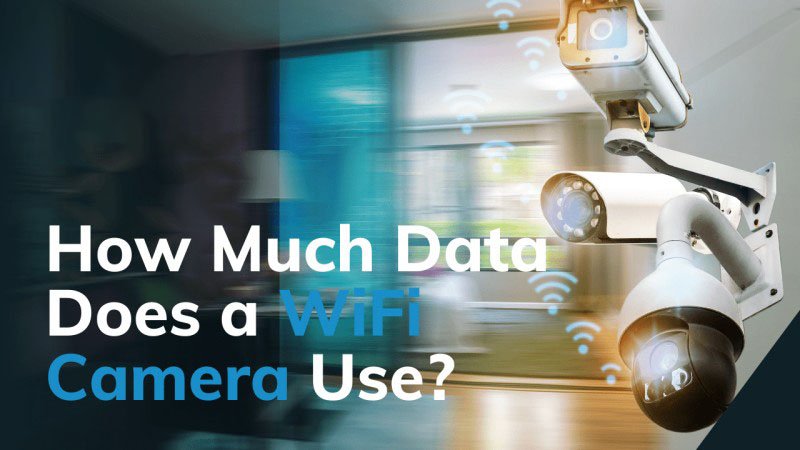Cloud storage has transformed how solar camera footage is saved, offering secure, accessible, and efficient data management. Solar cameras, known for being eco-friendly and convenient, work well with cloud storage. Users can access recorded footage anytime, from any device. This keeps data safe from physical damage or theft and allows easy storage expansion when needed.
Cloud storage also enables real-time monitoring, so users can view footage remotely and receive instant alerts.
Features of Cloud Storage for Solar Cameras
1. Automatic Data Backup
- Video and image files are uploaded to the cloud instantly, protecting against loss from camera damage or memory card theft.
- This ensures data remains accessible even during unexpected events.
2. Easy Footage Recovery
- If hardware fails, users can restore footage directly from the cloud.
- This minimizes downtime and avoids permanent data loss.
3. Remote Footage Access
- Users can view monitoring content anytime and anywhere with an internet connection.
- Cloud storage works with both mobile and desktop apps, making it easy to access across devices.
4. Flexible Storage Plans
- Users can select plans based on their needs, like 7-day or 30-day playback options.
- Storage can be expanded by upgrading plans, removing the need for physical hardware changes.
5. Strong Security Features
- Data is encrypted during transfer and storage to keep it safe and confidential.
- Multi-factor authentication prevents unauthorized access.
6. Continuous Recording and Storage Management
- The cloud allows for 24/7 recording without manual effort.
- Unlimited storage capacity prevents gaps in footage and avoids overwriting issues.
7. Additional Benefits
- Efficient Resource Use: Centralized data management reduces waste and improves efficiency.
- Eco-Friendly: Large data centers use energy efficiently, lowering the carbon footprint.
- Automatic Updates: Cloud services provide regular updates, so users get the latest features without managing hardware.
- Smart Tools: Built-in analysis tools help users gain insights and make decisions.
- Regulatory Compliance: Industry standards ensure data is managed legally and securely.
Benefits of Using Cloud Storage for Solar Cameras
1. Lower Costs for Local Storage
Cloud storage removes the need for expensive hardware like servers and hard drives. This greatly reduces the initial cost of setting up solar camera systems, making them more affordable for a wider audience.
2. Flexible Pay-as-You-Go Plans
Users can choose customizable wireless solar camera‘s cloud storage plans based on their needs. These plans help control expenses and avoid large investments in physical storage.
3. Protection Against Physical Loss
Cloud storage keeps video data secure even if solar powered security cameras or local devices are damaged, stolen, or tampered with. This ensures that important footage is always safe and accessible.
4. Advanced Security for Data
Data stored in the cloud is protected with encryption, multi-factor authentication, and regular security checks. These measures guard against unauthorized access, cyberattacks, and data breaches.
5. Easy Access and Sharing
Authorized users can access and share video footage from anywhere with an internet connection. This makes security monitoring more convenient and improves teamwork.
6. Smart Features with Real-Time Alerts
Many cloud services integrate with advanced security features like motion detection and real-time notifications. These tools improve the responsiveness and functionality of solar security cameras.

7. Supporting Sustainability
Outdoor Solar cameras, already eco-friendly, benefit further from cloud storage by reducing reliance on physical devices. This minimizes carbon emissions and enhances environmental sustainability.
8. Scalable and Efficient Storage
Cloud storage allows users to increase storage capacity without adding hardware. It also optimizes resource use, reduces redundancy, and improves efficiency.
9. Automatic Backups and Disaster Protection
Automatic backups save data consistently, preventing loss from hardware failures or unexpected events. Cloud storage also provides off-site protection from disasters like fires or floods.
10. Hassle-Free Updates and Maintenance
Cloud providers update their systems regularly, ensuring users get the latest features without worrying about hardware upgrades.
How to Choose the Right Cloud Storage for Solar Cameras?
1. Compatibility with Camera Models
Ensure the cloud storage service works with your camera model. For example, ICSEECAM’s storage is compatible with its Ubox Solar Camera, but it’s important to confirm before subscribing.
2. Software Integration
Choose a service that integrates smoothly with the solar camera app. LS VISION’s storage works with the “Mycam” app and can also support the “Tuya” app if specified during purchase.
3. Flexible Pricing Plans
Look for pricing plans that meet your needs. LS VISION offers weekly to yearly plans, including a 7-day free trial for evaluation.
4. Storage Duration Options
Select a storage plan based on how long you need to keep your videos. LS VISION provides options for 7-day and 30-day playback under half-year or one-year plans.
5. Data Consumption Awareness
Be aware of the data usage. LS VISION’s cloud storage uses about 8GB per day, which consumes around 30% of an HD solar camera’s electricity.
6. User Feedback
Choose a service with good reviews. Companies like LS VISION and Reolink are known for reliable services and user-friendly interfaces.
7. Data Security and Encryption
Ensure the service protects your data with strong encryption. For example, Reolink uses SSL-secured plans and encrypts data at the source for better security.
8. Automatic Backup Features
Select a provider with automatic backup features to avoid data loss. Reliable services regularly back up your data for continuity and reduced risk.
9. Customer Support and Technical Assistance
Check the quality of customer support. LS VISION offers specific installation advice, while Reolink provides setup guides and troubleshooting help.
10. Global Accessibility and Scalability
Choose a provider with worldwide availability and scalable storage options. Reolink, for instance, has storage locations in several countries and allows you to upgrade storage as needed.
Cloud Storage Features for Different Use Cases
1. Residential Security
Homeowners use solar cameras with cloud storage to monitor entrances, backyards, and other vulnerable spots. Remote access to footage provides peace of mind, especially for frequent travelers who rely on this feature to stay informed about their home’s security.
2. Commercial Properties
Businesses with multiple locations benefit from cloud storage for centralized data access and monitoring. Owners and managers can review security footage or operational data from all sites on one platform, making surveillance more efficient.
3. Remote and Rural Areas
Solar cameras with cloud storage are perfect for remote areas without traditional power sources. The cloud ensures constant access to surveillance data, even in difficult environments, making it essential for monitoring isolated locations.
4. Construction Sites
Construction sites with temporary surveillance need to gain from waterproof solar cameras and cloud storage. Their portable and scalable design allows for easy relocation as projects progress, ensuring uninterrupted monitoring.
Addressing Common Concerns About Cloud Storage
1. Internet Dependence
Cloud storage needs stable internet for real-time backups and access. To address this, many providers include offline recording. This feature syncs stored footage to the cloud when connectivity resumes.
2. Data Privacy
Digital storage raises privacy concerns. Top cloud providers protect user data with strong encryption, compliance with data protection laws, and secure server locations, giving users confidence in their data’s safety.
3. Costs Over Time
While cloud storage is often cost-effective, subscription fees can add up. Users should carefully evaluate their long-term needs and pick plans that suit their budget to avoid unnecessary costs.
Conclusion
Cloud storage and solar CCTV cameras work together to meet modern surveillance needs. This combination provides reliable, scalable, and secure footage management, even in remote or off-grid locations. By using cloud technology, users can monitor without interruptions, making it ideal for residential, commercial, and remote security. This setup boosts the efficiency of your security system, offering convenience and peace of mind.








